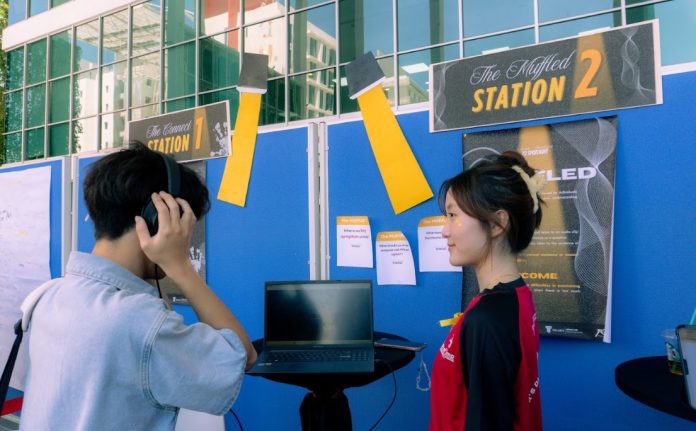
When children ask for more food, they are typically met with one of two responses, “Don’t eat so much!” or encouraging them with “Eat more, you are a growing child.” However, there could be a deeper reason behind the constant hunger. Some children experience an insatiable appetite, also known as hyperphagia, a symptom of the Prader-Willi Syndrome (PWS), which is a rare genetic disorder in Malaysia. If left unmanaged, this condition can lead to chronic overeating, significantly increasing the risk of obesity and serious health complications such as diabetes, high blood pressure, and heart disease.
The prevalence of PWS is about 1 out of 15,000 births [1] Yet, due to the lack of awareness in Malaysia, many remain undiagnosed or are misdiagnosed with other conditions. To date, only 199 cases are being identified through the Prader-Willi Syndrome Association, Malaysia (PWSA Malaysia), signifying the likelihood that many more individuals are living with the disorder without proper support, care, and community.
While there is no cure for PWS, certain treatments can help manage its symptoms. One of the most important is Human Growth Hormone (HGH) treatment, which improves muscle strength and supports physical growth. However, the cost of this treatment is very high. As a rare disease, PWS currently receives no support for the HGH treatment in Malaysia, and as a result, only 15% of families within PWSA Malaysia can afford it for their children.
To raise awareness and foster greater understanding of PWS, students from the Diploma in Communication (DICM) programme at Taylor’s College organised Voices for Hope, a meaningful campaign dedicated to raising awareness for PWS and funds for PWSA Malaysia. The event was held in collaboration with PWSA Malaysia and in conjunction with DICM’s 25th anniversary celebration, reflecting how the use of communication can spark real-world impact and awareness.
The event featured a range of interactive experiences designed to build understanding and connection between the public and the PWS community. Individuals of the PWS community had the opportunity to experience an inclusive game of pickleball, reinforcing the message that everyone deserves to be seen, included and supported. DICM students also prepared a sensory simulation experience with myth-busting games to shift perspectives and spark curiosity through engagement about the realities of living with PWS.
Group leader Qreena Tee Qi Jiun, a second-year student of the DICM programme was honoured to be organising an event that could make a meaningful difference for a rare disease and its community. She shared, “The real learning is not just about gaining knowledge from books, it is also about sharing humanity, empathy and understanding to spread awareness to people around us. Although the effort might be like a flame, but it is always enough to light up the entire path in the dark. A small spark lights up the dark, a small cause lights up the future.”
Participants of Voices for Hope had the opportunity to engage directly with individuals living with PWS and their caregivers, offering valuable, firsthand insights into the challenges and resilience within the community. Among them were three devoted caregivers who shared their personal journeys of raising sons with PWS, highlighting both the daily realities and the importance of community support in navigating life with this rare disorder.
For Azman bin Ahmad Bakri, one of the greatest struggles is the low awareness about PWS, even among medical professionals. “We have tried applying through the normal channels, but not a lot of doctors are well equipped in handling PWS cases, and there are also instances where they are not very familiar with what PWS is. It is very frustrating for us caregivers because we are not able to get the right care when the condition is not recognised or understood,” he explained. This sentiment was echoed by Lantz Yap, another caregiver who faces similar challenges in seeking medical support.
Maheswarie Subramaniam shared that her son, Nagheendran, now 26 years old, was misdiagnosed before finally receiving a proper diagnosis at the age of four. His experience highlights the delays that can occur when awareness is lacking, often leading to missed opportunities for early intervention and critical treatment.
Azhar Talib, President of the Prader-Willi Syndrome Association Malaysia, shared that Malaysia is now taking an active role in the global PWS community. He elaborated, “It is encouraging to see promising research happening in areas like gene therapy and hunger control. We may not have a cure yet, but there is real progress, and Malaysia is now part of that global conversation.”
PWSA Malaysia’s long-term goal is to secure better access and subsidies for daily HGH treatment within the next five years. In addition, the association’s website offers valuable resources, including guidelines on caring for children with PWS at different life stages, covering areas such as education, dietary management, and emotional well-being, providing a much-needed support to families navigating this rare condition.
Beyond the medical and financial hurdles, social challenges weigh heavily on these families. “Sometimes when people see a hungry child, their instinct is to offer food,” Azman explained. “But for our children, that can be dangerous. There were times when people criticised us for limiting his food intake. The truth is, we are not restricting him; we are protecting him.”
Lantz Yap shared that the diagnosis brought about significant lifestyle changes to the family upon Ken, his son’s diagnosis. He learned to cook healthier meals tailored to his son’s needs and, at times, the family eats separately to help manage Ken’s portions while ensuring he still receives proper nutrition.
Yet, amid all the hardship, these parents hold on to moments of joy. “Every smile, every laugh, every tear — those are the moments I treasure with my son, Mike. Some days, the little things feel like a big win. We keep going because we must,” Azman said.
——————————
[1] Foundation for Prader-Willi Research, What is Prader Willi Syndrome?



